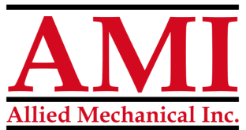HVAC Solutions: Enhancing Comfort and Efficiency
In the realm of modern living, ensuring optimal indoor climate control is paramount. HVAC solutions, encompassing Heating, Ventilation, and Air Conditioning, play a pivotal role in achieving this balance. This comprehensive guide will elucidate the nuances of HVAC solutions, from efficient temperature regulation to maintaining impeccable air quality.
Understanding HVAC Solutions
This section will delve into the core elements that constitute a robust HVAC system. From heating mechanisms to ventilation and air conditioning units, each component contributes significantly to a comfortable indoor environment.
Heating Systems: Cozying up Your Space
At the heart of every effective HVAC system lies a proficient heating apparatus. Whether it’s a furnace, boiler, or heat pump, a well-maintained heating system ensures your space remains warm and inviting during chilly periods. With the integration of smart thermostats, regulating temperatures has never been more efficient.
Ventilation: The Breath of Fresh Air
Superior ventilation is imperative for maintaining pristine indoor air quality. Advanced HVAC systems are equipped with filters and ventilation mechanisms that expel impurities, allergens, and stale air, ensuring a constant influx of fresh, revitalizing air.
Air Conditioning: Beat the Heat with Cool Precision
When the summer sun beats down relentlessly, a reliable air conditioning system becomes your sanctuary. From split systems to central air units, a spectrum of options caters to diverse spatial requirements. Opting for energy-efficient models not only keeps you cool but also aligns with sustainable environmental practices.
Maximizing Energy Efficiency
In this segment, we’ll unravel strategies to augment the energy efficiency of your HVAC system, offering benefits to both your comfort and your finances.
Smart Thermostats: Precision at Your Fingertips
Embarking on the journey of energy efficiency often starts with investing in a smart thermostat. These intuitive devices learn your preferences and adjust settings to optimize comfort while minimizing energy consumption. This intelligent technology ensures that energy wastage is a thing of the past.
Regular Maintenance: Prolonging Your HVAC System’s Lifespan
Scheduled maintenance stands as the linchpin to a long-lasting and efficient HVAC system. Simple tasks like changing filters and cleaning ducts can substantially enhance performance and curtail energy consumption.
Zoning: Targeted Comfort, Effortlessly Achieved
The concept of zoning enables you to direct heated or cooled air precisely where it’s needed. This translates to avoiding energy wastage on unoccupied rooms, channeling climate control efforts towards spaces that warrant it the most.
FAQs (Frequently Asked Questions)
What Determines the Size of an HVAC System?
The size of an HVAC system hinges on factors such as the spatial expanse, insulation, and local climate conditions. Engaging the services of a professional HVAC technician for an assessment is pivotal in ascertaining the most suitable size.
How Frequently Should Air Filters be Replaced?
Air filters should ideally be replaced every one to three months. The frequency depends on variables like indoor air quality and the type of filter employed. Regular replacements ensure optimal performance and uphold air quality standards.
Can I Undertake HVAC System Installation Personally?
Are Ductless HVAC Systems Notably Energy-Efficient?
Indeed, ductless systems have earned a reputation for their energy efficiency. By eliminating the energy losses commonly associated with ductwork, they provide more precise and efficient temperature control.
What Exactly is SEER Rating?
How Can I Elevate Indoor Air Quality?
Conclusion
Investing in top-tier HVAC solutions not only ensures comfort but also leads to substantial energy savings and enhanced indoor air quality. Armed with an understanding of your system’s components and adhering to energy-efficient practices, you can create a space that exudes comfort and welcomes you warmly throughout the year.

